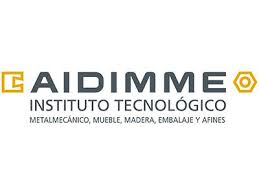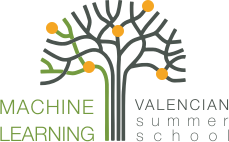
El próximo lunes 25 de septiembre a las 12:30h, en el salón de actos del edificio 1H de l’Escola Tècnica Superior d’Enginyeria Informàtica, Laura Titolo y Marco Feliu, miembros del grupo de investigación en métodos formales de NASA Langley, imparten un par de charlas sobre las tareas que están desarrollando actualmente en este centro de investigación de la NASA.
Formal methods for safety-critical avionics systems
Part 1: Dr. Laura Titolo
Static Analysis of Floating-Point Programs by Abstract Interpretation
Floating-point arithmetic is an efficient solution for approximating computations on real numbers, which has been extensively used over the past decades in a wide range of applications. The main drawback of floating-point computation is the presence of round-off errors that can make the final floating-point result very different from the one that would be obtained by using real arithmetic. This issue becomes problematic for safety-critical applications, such as aerospace and air-traffic control software. In fact, for these applications, even a small error can lead to catastrophic consequences. For this reason, it becomes essential to estimate the round-off error of floating-point computations in a sound and certified way.
In this presentation, a static analysis framework based on abstract interpretation is presented to deal with this problem.
The static analyzer PRECISA (Program Round-off Error Certifier vIa Static Analysis) implements this technique and automatically computes an over-approximation for the round-off error of an input program. In addition, it provides a certificate that can be externally checked by a theorem prover that ensures its soundness.
PRECISA has several features: it is fully-automatic, it is certified via PVS, it is able to deal with a wide variety of arithmetic functions, even non-continuous ones, it can handle the intrinsical instability of conditionals (if-then-else) and recursion in a sound way, and it is modular, supporting scalable analysis of complex programs.
Laura Titolo is a postdoctoral research scholar at the National Institute of Aerospace (Hampton, VA, USA) and member of the NASA Langley Formal Methods Team.
She received her PhD in Computer Science from the University of Udine in May 2014.
Her research interest include abstract interpretation, static analysis, automatic verification of hybrid systems, and numerical analysis of floating-point programs.
Part 2: Dr. Marco Feliu
Verification-driven development of ICAROUS based on automatic reachability analysis
The Integrated and Configurable Algorithms for Reliable Operations of Unmanned Systems (ICAROUS) is a software architecture being developed for the robust integration of mission-specific software modules and highly assured core software modules.
This talk presents the use of automatic reachability analysis during the development of ICAROUS, as a first step towards a broader formal verification effort of the software architecture.
It shows how simulation based on state-space exploration and LTL model checking has been performed on a formal executable specification of the system in rewriting logic.
Overall, this effort has unveiled issues such as deadlocks and undesired behavior, and has helped improve the ICAROUS design and source code.
Short bio:
Marco A. Feliu is a postdoctoral research scholar at the National Institute of Aerospace (Hampton, VA, USA) and member of the NASA Langley Formal Methods Team.
He received his PhD in Computer Science from the Universitat Politecnica of Valencia in October 2013.
His research interests include declarative programming languages, program analysis, and synthesis.









